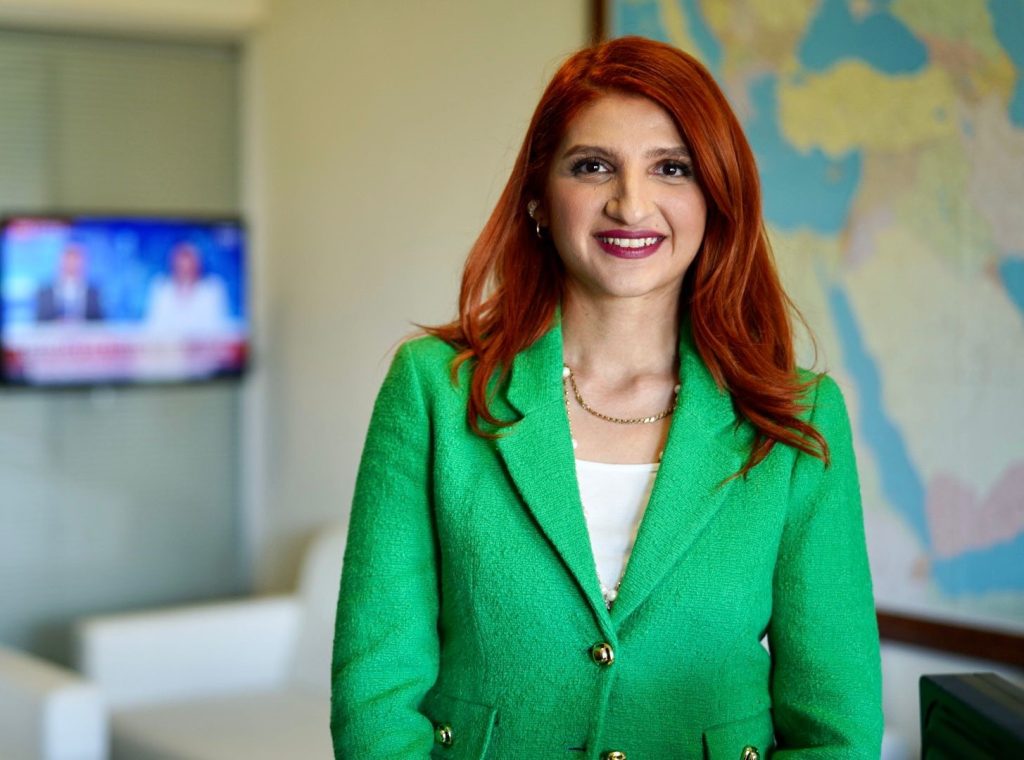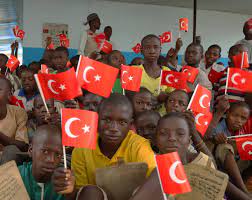More than ever, there is a consistently growing policy shift in Turkiye’s interests in Africa, a growing mutual alliance that has become a thing of interest for other governments, power blocs and geopolitical enthusiasts. To have a glimpse and understand what is driving this new visibility of Turkiye in Africa, our Editor-In-Chief Alkasim Abdulkadir had an in-depth dive into the issue with Assistant Professor Suay Nilhan Acikalin a Turkish foreign policy and political leadership expert who holds a Doctorate degree from Middle East Technical University, Institute of Social Sciences, International Relations, Turkey. She is a widely published and cited scholar and also a recipient of the Jean Monnet Scholarship program in 2019. She is also currently the Vice Director of the Graduate School at the Ankara Hacı Bayram Veli Üniversitesi.

African countries have a lot to learn about Turkiye’s brand of nationalism, what drives it, what is that thing that makes public officials and citizens want to give their all to their country.
Türkiye has long and deep state tradition sourced from Ottoman Empire and beyond. That’s why, Türkiye’s policy choices are not random but there is a great accumulation, great wisdom and foresight behind it. Nationalism is undeniable component of Turkish political social life. For example, our flag is precious for us which symbolizes our sovereignty and red for blood of martyrs, so the feeling of nationalism of society also deeply rooted in our history. Also, As President Erdoğan underline our understanding of nationalism is serving our people. It can be said that Turkish nationalism is inclusive that bring all part of the society regardless differences.
Turkey has Yunus Emre centers around the world including Africa, like in my Abuja, Nigeria, these centers teach Turkish language at subsidized costs, and have well-stocked libraries, what was the original idea behind these centers as we can see that more are springing up
First of all, Yunus Emre Institutes aims to increase the number of people who forge bonds with and are friendly to, Türkiye all around the world. This vision has of course historical and philosophical dimensions. Historical roots also lie in the name of institutions which is Yunus Emre. Yunus Emre was an Anatolian Sufi who lived during the 13th and 14th centuries. His most notable attribute is that he represents human ideals, human love, and societal harmony. It is no accident that the name Yunus Emre was chosen for our Institute, which takes a people-oriented approach. With his ideology based on universal human values, this outstanding individual not only contributed to the development of Turkish through his poetry, but also sent messages targeted at people living in peace and within shared principles without discrimination based on religion, language, or race.
In terms of Turkiye’s interaction with Africa what is the major fulcrum of the relationship is it trade, security, humanitarian, weapons, manufacturing, or construction?
Türkiye’s influence on the African continent has grown steadily over the years. This has resulted in closer connections between Turkey and African continent. Türkiye’s policies towards Africa operate within the framework of a win-win strategy, with economic, humanitarian, and security components driving the majority of decisions. Furthermore, Türkiye has said that the ideals of equitable partnership and mutual benefit would be the primary driving force in Türkiye-Africa ties. This win-win approach reflects in multidimensional cooperation including security, trade, technology etc with many actors in the region. Turkish Foreign Policy has Enterprising and Humanitarian dimensions are experienced by the international system during Russian-Ukrainian Crisis. Tons of grain, food and humanitarian transportation throughout Africa continent is not halted thanks to Türkiye’s Black Sea Grain Corridor Initiatives. As seen, Africa considered as one of the main priorities in Turkish Foreign Policy both to mitigate crisis and provide stable environment.
Historically, the Ottoman Empire had contact with Africa, all through North Africa and as far as Borno in Nigeria, and then there was a retreat and a resurgence in 2005 -tagged the year of Africa, what were some of the remote and immediate causes that brought about the year of Africa?
Türkiye and Africa have deep historical and ties for centuries. However, through the years unfortunately continent was somehow ignored. AK Party set to have a more multidimensional foreign policy and as a result of this approach with the declaration of 2005 as “African Year,” Türkiye launched several initiatives that established Ankara as a strategic partner in continental and regional organizations such as the African Union and the Organization of Islamic Cooperation, both of which have nearly half of their 57 members from Africa. Turkey’s anti-colonial discourse, notably in Sub-Saharan Africa and as a “friend and development partner” opposed to colonialism, imperialism, and other types of exploitation. Heartfelt attitudes of Turkish people toward Africa assist Ankara in acting as a counterweight to colonial powers such as France and other European powers.
Turkey is represented by 43 active embassies across the continent, a significant increase from a mere 12 two decades ago. Making it one of the countries with the highest number of representations on the continent, has this representation yielded positive results?
Türkiye has the highest number of representatives in the region. There are two positive consequences of having 43 active embassies. First one official representation of Türkiye through embassies make it easier to reach all part of society through official programs. Secondly, existence of high number of active embassies is key to facilitate systematic structure in economic, political and cultural relations. In fact, especially after opening new embassies Türkiye and African countries also successfully developed relations in multilateral platforms. It is also good news that more Turkish embassies will be opened in the coming years in the continent.
The number of African embassies in Ankara has gone from 10 in 2008 to 37 in 2021. This obviously shows a Turkey-Africa affair in a multi-dimensional approach instead of a single point of view. What are some of the challenges of the Turkiye-Africa relationship, so far?
In the medium and long terms, Turkiye might face additional difficulties brought on by intra-continental struggle amongst foreign powers. On the other hand, changing intra-regional dynamics in the continent can be deemed as challenging but Türkiye has been already considered two main challenges and I believe The future of Turkish-African ties will be determined by Turkey’s win-win approach and also policies to these numerous problems.
What does the future look like for the continent of Africa and Turkiye?
Our relationship becomes stronger day by day. It is not easy to predict when Regional and global dynamics have changed in unpredictable ways. However, I believe Türkiye and Africa will envision strategic future hand in hand and through hearts while our societies will flourish in prosperity and peace .
The Editor-In-Chief Alkasim Abdulkadir is 2022 recipient of the YTB Katip Program at Ankara Haci Bayram Veli University in Ankara, Turkey.

